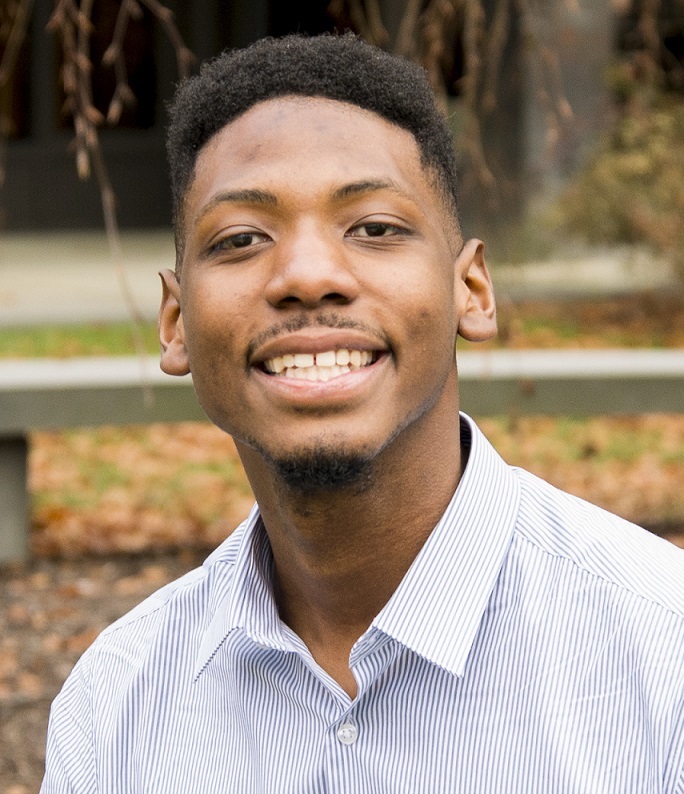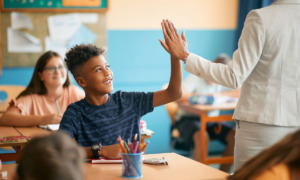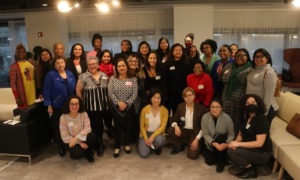 michaeljung/SHUTTERSTOCK
michaeljung/SHUTTERSTOCK
When I arrived in Oakland, Calif., to attend the Obama Foundation’s MBK Rising! convening in February, I was one of many community members, elected officials and young leaders from across the United States and around the world who came to be a part of history. These changemakers came to learn what works, what’s at stake and what commitment they must put forth to create real change in the lives of the boys and young men of color.
For too long those leaders have been disconnected from one another, unable to create a shared vision for making the world as it should be — and the Obama Foundation held this convening to change that.

Senegal Mabry
I am 21 years old and serve on the Obama Foundation’s My Brother’s Keeper Alliance (MBK) Advisory Council. I’m also a full-time student at Binghamton University and work as assistant to the chancellor of the New York State Education Department. As a young black man born in Harlem and raised in the Bronx, I’ve committed myself to making change in our education system and creating equity for young people across my state.
I know what it’s like to not have my voice heard, to not have a seat at the table and I was moved to see what leaders at MBK Rising! were doing to ensure no one in their communities feels voiceless again. When these communities claim their voice, they empower to commit to the deep personal work of saving lives in their communities.
The MBK network has always been diverse and intersectional but MBK Rising! not only highlighted the voices of black, Latinx and natives, it was led by those who have the most at stake in the work of MBK: our young people. I led the MBK Rising! youth programming with more than 150 participants.
Nervous about how I would take on that task, I asked President Obama if he had any advice for me. He told me to have the young folks lead it and he thought “toxic masculinity is a vital topic.”
Deep learning, action plans
With President Obama’s advice in mind, the foundation convened a new committee of young leaders to design the youth programming at MBK Rising! The program had to activate, challenge and empower the young participants to further integrate their own communities into the work of MBK.
We selected 20 young people to facilitate deep learning among the participants. ESPN’s Michael A. Smith moderated a panel for the leaders of today; my best friend, Malachi Hernandez, interviewed CNN Hero and Obama Foundation Fellow Harry Grammer, who spoke about the importance of young people seeing themselves as leaders; and we had a keynote from Newark Mayor Ras Baraka.
Our end goal was to have participants assess the needs in their home communities, master the six research-based milestones for greater success in adulthood, and develop an action plan to tackle the issue. The results were phenomenal. Participants not only designed new strategies but have started to implement them in their home communities.
One leader, Tanisha Scott, 23, from Seattle. came to MBK Rising as her hometown’s representative of Cities United. Tanisha is a lifelong Boys and Girls Club member who fostered her own business there. She said President Obama and the celebrities were not the highlight of her MBK Rising! experience. She learned most from other young people at the event, and is adapting what she learned for her city.
Tanisha often feels like she’s the only young person working as an advocate for the children in her community. She’s felt isolated before as she fought to become the first college graduate in her family and a track athlete at New Mexico State University. She admitted that “it’s hard to have a heart for this work,” so hard she almost gave up. MBK Rising! strengthened her commitment to being a sister to those who feel like they don’t have anyone.
Community leaders and organizations need to ask themselves: Will they continue to make young people an afterthought? Or will they give young people like Tanisha the leadership role they deserve?
Senegal Alfred Mabry is a master’s in public administration student at Binghamton University’s College of Community and Public Affairs. He serves as the assistant to the chancellor of the New York State Education Department and on The Obama Foundation My Brother’s Keeper Alliance Advisory Council.































